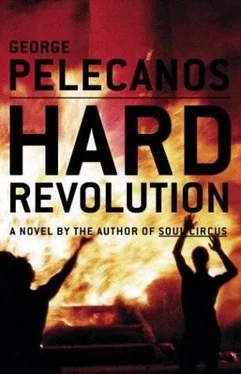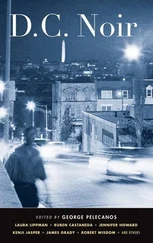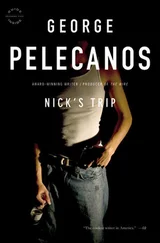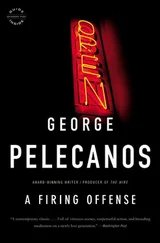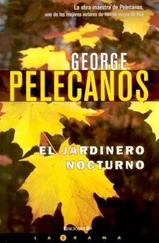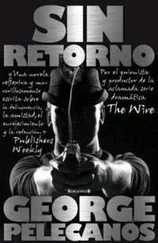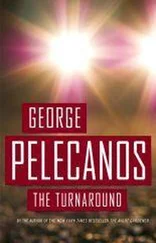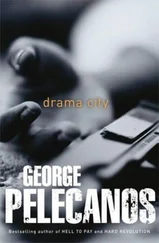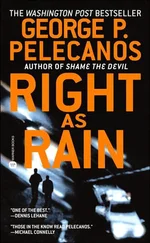“You need a ride?” said Derek, sopping up the yolk of the eggs with a triangle of toast.
“I’m gonna catch the uptown bus,” she said. “You finish your breakfast and get yourself into bed. I want you to sleep.”
Derek did as he was told. He fell asleep quickly in his brother’s bed and did not hear his mother leave the house.
ON FRIDAY MORNING, Strange slept soundly. As he slept, commuters from the suburbs drove cars and rode buses to their downtown jobs. One hundred fifty thousand students and teachers reported to D.C. public schools, which had been decreed open by Mayor Washington after he had conferred with school superintendent William R. Manning. It was decided that activities related to the annual Cherry Blossom Festival would also go on as planned. Despite the rioting of the night before, public officials and police administrators expected it to be a quiet day.
From the start, there were indications that this would not be so.
All night and into the morning, tales had spread throughout the city of the exploits of the Shaw rioters and looters. They spread via phone and ghetto telegraph: street talk at bus stops, in living rooms, at corner markets, and at predawn pickup points for day laborers. The stories became romanticized with each telling; they fired up the anger, imagination, spirit of adventure, and ambition of the young.
Many black working-class men and women, along with black government workers, managers, and bureaucrats, stayed home from their jobs. Black teachers, and some white teachers, called in sick in protest or asked outright to be excused from work so they could attend memorial services for Dr. King.
Shortly after the opening bell, school officials began to report massive student absences, as well as a general unruliness and insubordination among the students who had reported to class. An SNCC official tried to persuade Superintendent Manning to close the schools, but he did not. As the morning went on, increasingly frustrated principals, some with panic in their voices, reported that the situation was deteriorating and claimed that the students could no longer be controlled.
Based on history, officials believed that riots occurred, for the most part, at night, after extended lulls in activity during the daylight hours. Accordingly, D.C. National Guardsmen had been ordered to be prepared for possible action on Friday night and were in the early stages of assemblage at the downtown armory. The CDU riot police were not due to report back until five p.m. Also, because of the relative quiet at dawn, many cops working double shifts had been dismissed early. Consequently, on Friday morning, police presence on the street was not noticeably heavier than it was on any other day.
Youths began congregating and drifting in roving bands on 14th and 7th Street, along H Street Northeast, and in east-of-the-river Anacostia. They stood in the doorways of retail establishments and taunted white store owners and clerks who had reported in for work. They shook the cars of white drivers stopped at red lights. A young white man was dragged from his automobile on 14th Street and brutally beaten. His life was saved by a Catholic priest.
Just below the apartment house of Derek Strange, at 13th and Clifton, the students at Cardozo High School began to walk out of classes. By midday, half of them had left the grounds. Along with students of other nearby high schools, many joined their friends on 14th and 7th Streets. Some walked to the grounds of Howard University, where Stokely Carmichael was scheduled to speak.
At a news conference that morning, Carmichael had said, “When white America killed Dr. King last night, she declared war on us. There will be no crying and there will be no funeral.” And: “There no longer needs to be intellectual discussion. Black people know that they have to get guns. White America will live to cry that she killed Dr. King last night.”
At Howard U, there had been an early service for faculty and students in Crampton Auditorium. Following a speech by university president James Nabrit, a choir led the attendees in Brahms’s Requiem, along with “Precious Lord,” which Dr. King had asked to be sung at Thursday night’s gathering moments before he was shot. The final song, “We Shall Overcome,” was reportedly less well received. Many young people in the Crampton audience refused to sing along.
Afterward, outside the steps of Frederick Douglass Hall, a more aggressive rally had begun, as speakers stepped up to denounce white racism to an audience of several hundred listeners. The crowd was heavy with serious faces, black turtlenecks, fatigue jackets, goatees and Vandykes, naturals, and shades. The American flag, flying at half-mast, was lowered, and the flag of Ujamma, a campus Black Nationalist organization that advocated a separate black nation, was raised. A female speaker came out against nonviolent response. “I might die violently,” she said. “But I am going to take a honky with me.” Stokely Carmichael, in sunglasses and fatigues, stepped up to the microphone next.
In the crowd stood Carmen Hill. She had been up half the night with her friends discussing the events and watching them unfold on TV. Most of her friends were in favor of the violence that had erupted Thursday night. None of them had participated. She had called Derek twice during the night at his apartment to make sure he was all right. There had been no response.
Carmen knew intellectually that what had happened, what was going to happen, had been coming for some time. She was a black woman, and in her heart she stood with her people. Like many young black people, she felt invigorated and emboldened by the response to the King assassination. She was also afraid.
Carmen listened to Carmichael’s speech. She watched him produce a gun from his jacket and wave it above his head, as he had on 14th Street the night before.
“Stay off the streets if you don’t have a gun,” said Carmichael, “because there is going to be shooting.”
Carmen thought of Derek and prayed to God to keep him safe.
A LITTLE AFTER noon, on 14th Street, just south of U, a fire broke out at the local Safeway. Four minutes later, eleven blocks north of the grocery store, a mob of young men set fire to a clothing store on the corner of Harvard Street.
Firemen and available police were called back down to 14th.
Almost immediately, teenagers and young men, who had been gathering all morning on the strip, began to initiate further activity. Fires were set in Belmont TV, the London Custom Shop, and Judd’s Pharmacy, which had already been damaged and looted the night before. As firemen tried to hook up their hoses to hydrants, they were bricked, assaulted, and verbally abused, protected only by small groups of baton-wielding police who had arrived on the scene. The fires spread to the apartments above and the tenement buildings behind the stores. The Worthmore Clothing store on Park Road began to burn.
The mob moved from one spot to the next, undaunted by tear gas canisters and gas grenades. They began to break into stores between Columbia and Park Road, a retail strip of chain and white-owned businesses. They used small missiles and trash cans, and kicked in windows with their feet. They uprooted street signs and used them as battering rams. Rioters swarmed into the Lerner’s and Grayson’s dress stores, Irving’s Men’s Shop, Carousel, Kay Jewelers, Beyda’s, Cannon Shoes, Howard Clothes, Mary Jane Shoes, Woolworth’s, and the G.C. Murphy’s five-and-dime.
Many black business owners had spray-painted or soap-written the words “Soul Brother” on their store windows or doors in the early morning hours. Many of these businesses were spared.
Middle-aged men and women began to loot. Families stole together. Parents and their children carted entire dining-room, bedroom, and living-room sets out of the Hamilton and Jordan Fine Furniture store at Euclid.
Читать дальше
